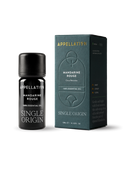Rejoignez-nous pour soutenir Treedom For Palestine, une initiative dédiée à la plantation et à la culture de 1 000 oliveraies à travers le paysage ancien de la Cisjordanie
L'olivier, reconnu comme un symbole universel de paix, revêt une signification encore plus profonde pour le peuple palestinien. La culture des oliviers est une tradition profondément enracinée, transmise de génération en génération. La récolte annuelle des olives est un événement culturel précieux, rassemblant familles, voisins et villages entiers pour cueillir les olives à la main, partager des repas sous les arbres, chanter des chansons traditionnelles et célébrer la saison avec de la nourriture, de la musique et de la communauté. C'est une tradition qui unit les générations – un patrimoine vivant représentant l'identité palestinienne et leur lien durable avec les terres ancestrales.
Selon les Nations Unies, près de la moitié des terres cultivées en Cisjordanie occupée sont plantées d'oliviers
Depuis des siècles, les oliviers prospèrent dans un paysage autrement difficile, résistant à la sécheresse, aux sols pauvres et même aux actes de violence, tout en s'épanouissant sous le soin dévoué de générations d'agriculteurs palestiniens.
Malgré leur robustesse, les oliviers en Palestine occupée font face à des menaces croissantes.
Un paysage ancien menacé
Avant la crise actuelle, les colons détruisaient déjà en moyenne 2 000 oliviers chaque année. Aujourd'hui, ce nombre a doublé. La violence des colons s'est intensifiée : les agriculteurs et producteurs d'olives en Cisjordanie sont de plus en plus ciblés par des gangs extrémistes, qui mènent souvent leurs attaques sous la protection de l'armée israélienne.
Les maisons, les réservoirs d'eau et le matériel agricole sont régulièrement vandalisés. Dans de nombreux cas, les Palestiniens sont agressés physiquement. Le nombre d'attaques a triplé pendant la récolte de 2024. Entre le 1er octobre et le 25 novembre seulement, l'ONU a documenté 250 attaques, avec plus de 2 800 arbres délibérément brûlés ou abattus.
Dans un incident tragique, un colon a tiré et tué la grand-mère palestinienne Hanan Abu Salameh alors qu'elle ramassait des olives dans le village de Faqqua, au nord de la Cisjordanie occupée.
De nombreux Palestiniens se voient totalement refuser l'accès à leurs terres. Selon le Haut-Commissaire des Nations Unies aux droits de l'homme, les restrictions d'accès en 2023 ont empêché les récoltes sur près de 100 kilomètres carrés de terres, entraînant une perte de 1 200 tonnes métriques d'huile d'olive – d'une valeur de 10 millions de dollars.
Malgré ces immenses défis, les Palestiniens continuent de revenir dans leurs vergers, pour entretenir ou replanter les arbres déracinés. Prendre soin des oliviers est une expression d'une résilience extraordinaire – qui met en lumière le lien indéfectible entre un peuple et sa terre.
Prendre soin des oliviers est une expression d'une résilience extraordinaire qui souligne le lien indéfectible entre un peuple et sa terre
Planter pour le changement et la résistance pacifique
Au milieu de la situation qui s'aggrave en Cisjordanie, l'organisation à but non lucratif américaine Treedom for Palestine travaille à protéger les terres et les moyens de subsistance palestiniens pour les générations futures.
En collaboration avec l'Union des agriculteurs palestiniens et son réseau de 16 000 petits agriculteurs, Treedom For Palestine a déjà établi 75 Freedom Farms à travers la Cisjordanie, chacune avec 250 oliviers. La moitié de ces fermes sont détenues ou gérées par des femmes.
Dans les zones où les terres cultivées sont moins susceptibles d'être saisies, les Freedom Farms agissent comme des boucliers vivants, aidant à résister à la menace d'annexion et à l'expansion des colonies, et garantissant que les terres palestiniennes restent entre les mains des Palestiniens.
Toutes les fermes sont protégées par des mesures de sécurité telles que des clôtures en acier, pour protéger les vergers des attaques, et des systèmes d'irrigation pour permettre aux arbres de prospérer – fournissant nourriture et indépendance économique aux agriculteurs et à leurs familles. L'objectif est de planter 1 000 Freedom Farms d'ici 2035, créant un point de basculement pour la prospérité et l'autonomie palestiniennes.
Une ferme récemment plantée dans le nord de la Cisjordanie à Tulkarem a été dédiée en hommage au défunt président américain Jimmy Carter. Carter était un critique virulent de la domination militaire d'Israël sur les Palestiniens, décrivant les conditions en Cisjordanie occupée comme un apartheid.
Tout comme Carter a consacré une grande partie de sa vie à défendre l'égalité palestinienne, planter des oliviers laisse également un héritage puissant. Avec chaque olivier planté, une graine d'espoir est semée. Chacun est un engagement envers les générations futures – et un un acte petit, mais profondément significatif, de résistance pacifique.
Veuillez rejoindre les fondateurs d'Appellation pour soutenir cette mission incroyable sur TreedomForPalestine.org Vous pouvez parrainer une ferme, ou faire un don ponctuel ou mensuel.














L'olivier : un symbole de paix, d'identité palestinienne et de résilience
Rejoignez-nous pour soutenir Treedom For Palestine, une initiative dédiée à la plantation et à la culture de 1 000 oliveraies à travers le paysage ancien de la Cisjordanie
L'olivier, reconnu comme un symbole universel de paix, revêt une signification encore plus profonde pour le peuple palestinien. La culture des oliviers est une tradition profondément enracinée, transmise de génération en génération. La récolte annuelle des olives est un événement culturel précieux, rassemblant familles, voisins et villages entiers pour cueillir les olives à la main, partager des repas sous les arbres, chanter des chansons traditionnelles et célébrer la saison avec de la nourriture, de la musique et de la communauté. C'est une tradition qui unit les générations – un patrimoine vivant représentant l'identité palestinienne et leur lien durable avec les terres ancestrales.
Depuis des siècles, les oliviers prospèrent dans un paysage autrement difficile, résistant à la sécheresse, aux sols pauvres et même aux actes de violence, tout en s'épanouissant sous le soin dévoué de générations d'agriculteurs palestiniens.
Malgré leur robustesse, les oliviers en Palestine occupée font face à des menaces croissantes.
Un paysage ancien menacé
Avant la crise actuelle, les colons détruisaient déjà en moyenne 2 000 oliviers chaque année. Aujourd'hui, ce nombre a doublé. La violence des colons s'est intensifiée : les agriculteurs et producteurs d'olives en Cisjordanie sont de plus en plus ciblés par des gangs extrémistes, qui mènent souvent leurs attaques sous la protection de l'armée israélienne.
Les maisons, les réservoirs d'eau et le matériel agricole sont régulièrement vandalisés. Dans de nombreux cas, les Palestiniens sont agressés physiquement. Le nombre d'attaques a triplé pendant la récolte de 2024. Entre le 1er octobre et le 25 novembre seulement, l'ONU a documenté 250 attaques, avec plus de 2 800 arbres délibérément brûlés ou abattus.
Dans un incident tragique, un colon a tiré et tué la grand-mère palestinienne Hanan Abu Salameh alors qu'elle ramassait des olives dans le village de Faqqua, au nord de la Cisjordanie occupée.
De nombreux Palestiniens se voient totalement refuser l'accès à leurs terres. Selon le Haut-Commissaire des Nations Unies aux droits de l'homme, les restrictions d'accès en 2023 ont empêché les récoltes sur près de 100 kilomètres carrés de terres, entraînant une perte de 1 200 tonnes métriques d'huile d'olive – d'une valeur de 10 millions de dollars.
Malgré ces immenses défis, les Palestiniens continuent de revenir dans leurs vergers, pour entretenir ou replanter les arbres déracinés. Prendre soin des oliviers est une expression d'une résilience extraordinaire – qui met en lumière le lien indéfectible entre un peuple et sa terre.
Planter pour le changement et la résistance pacifique
Au milieu de la situation qui s'aggrave en Cisjordanie, l'organisation à but non lucratif américaine Treedom for Palestine travaille à protéger les terres et les moyens de subsistance palestiniens pour les générations futures.
En collaboration avec l'Union des agriculteurs palestiniens et son réseau de 16 000 petits agriculteurs, Treedom For Palestine a déjà établi 75 Freedom Farms à travers la Cisjordanie, chacune avec 250 oliviers. La moitié de ces fermes sont détenues ou gérées par des femmes.
Dans les zones où les terres cultivées sont moins susceptibles d'être saisies, les Freedom Farms agissent comme des boucliers vivants, aidant à résister à la menace d'annexion et à l'expansion des colonies, et garantissant que les terres palestiniennes restent entre les mains des Palestiniens.
Toutes les fermes sont protégées par des mesures de sécurité telles que des clôtures en acier, pour protéger les vergers des attaques, et des systèmes d'irrigation pour permettre aux arbres de prospérer – fournissant nourriture et indépendance économique aux agriculteurs et à leurs familles. L'objectif est de planter 1 000 Freedom Farms d'ici 2035, créant un point de basculement pour la prospérité et l'autonomie palestiniennes.
Une ferme récemment plantée dans le nord de la Cisjordanie à Tulkarem a été dédiée en hommage au défunt président américain Jimmy Carter. Carter était un critique virulent de la domination militaire d'Israël sur les Palestiniens, décrivant les conditions en Cisjordanie occupée comme un apartheid.
Tout comme Carter a consacré une grande partie de sa vie à défendre l'égalité palestinienne, planter des oliviers laisse également un héritage puissant. Avec chaque olivier planté, une graine d'espoir est semée. Chacun est un engagement envers les générations futures – et un un acte petit, mais profondément significatif, de résistance pacifique.
Veuillez rejoindre les fondateurs d'Appellation pour soutenir cette mission incroyable sur TreedomForPalestine.org Vous pouvez parrainer une ferme, ou faire un don ponctuel ou mensuel.